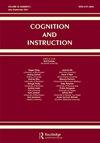课程知识作为响应式教学资源的个案研究
IF 2.3
1区 心理学
Q2 PSYCHOLOGY, EDUCATIONAL
引用次数: 1
摘要
摘要响应式教学——或突出并占据学生思维学科实质的教学——既是最近STEM教育改革的标志,也是实施起来的挑战。在要求或依赖于为学生提供固定、结构化学习轨迹的课程的教学环境中,这种教学可能特别具有挑战性。在本文中,我们提出了课程知识的一个新组成部分——特别是对研究性教学材料中问题或问题序列的目的的理解。我们发现,这类课程知识支持在一个由14名本科生物理学习助理组成的队列中实施响应式教学实践,说明了课程知识和响应式教学之间的关系。我们记录了支持这一群体课程知识发展的一些关键阶段和工具,深入了解教师教育工作者如何在自己的背景下支持课程知识的发展。本文章由计算机程序翻译,如有差异,请以英文原文为准。
Curricular Knowledge as a Resource for Responsive Instruction: A Case Study
Abstract Responsive instruction—or instruction that foregrounds and takes up the disciplinary substance of student thinking—is both a hallmark of recent STEM education reforms and challenging to enact. This kind of instruction may be especially challenging in instructional contexts that mandate or rely on curriculum with set, structured learning trajectories for students. In this paper, we propose a new component of curricular knowledge—in particular, an understanding of the purposes of questions or sequences of questions in research-based instructional materials. We show that this kind of curricular knowledge supported the enactment of responsive instructional practices among one cohort of 14 undergraduate physics Learning Assistants, illustrating the relationship between curricular knowledge and responsive instruction. We document some of the key phases in and tools that supported the development of this cohort’s curricular knowledge, lending insight into how teacher educators might support the development of curricular knowledge in their own contexts.
求助全文
通过发布文献求助,成功后即可免费获取论文全文。
去求助
来源期刊

Cognition and Instruction
Multiple-
CiteScore
7.90
自引率
12.10%
发文量
22
期刊介绍:
Among education journals, Cognition and Instruction"s distinctive niche is rigorous study of foundational issues concerning the mental, socio-cultural, and mediational processes and conditions of learning and intellectual competence. For these purposes, both “cognition” and “instruction” must be interpreted broadly. The journal preferentially attends to the “how” of learning and intellectual practices. A balance of well-reasoned theory and careful and reflective empirical technique is typical.
 求助内容:
求助内容: 应助结果提醒方式:
应助结果提醒方式:


